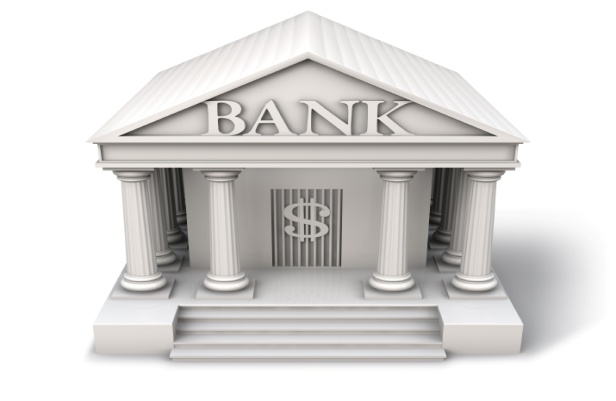
- •V ocabulary:
- •3. Complete the sentences:
- •4. Complete the sentences with appropriate words or phrases from the box:
- •5. Match English proverbs and idiomatic expressions with their Russian equivalent:
- •6. Find the Russian equivalents for the following words and word - combinations:
- •7. Read the text, discuss and name the ways you save money: s aving Money
- •R ead the jokes, translate and retell:
- •Translate and comment on the quotations:
- •Make the sentences interrogative and negative:
- •Write down the words you associate with banks. Compare your words with your groupmates.
- •Agree or disagree:
- •Read and translate the text. Use dictionaries to find the meanings of unknown words: Banks
- •Complete the sentences by putting the verbs in brackets into the appropriate form:
- •Debate:
- •Correct the mistakes:
- •Translate from Russian into English:
- •Search the Internet and find information. Talk what you discover:
- •Vocabulary:
- •Read and translate the text: a dvertising Influence
- •Complete the sentences:
- •4. Complete the sentences with appropriate words or phrases from the box:
- •5. Match the words with their definitions:
- •6. Find the Russian equivalents for the following words and word - combinations:
- •7. Make a list of all the places where you come across advertisements. Compare your list with your groupmates’. Can you offer any new and innovative ways to advertise?
- •Read the text, discuss and give examples of successful advertisements:
- •Translate and comment on the quotations:
- •10. Choose the right answer:
- •Fill the gaps with prepositions from the box. Translate the sentences:
- •Read and translate the text. Use dictionaries to find the meanings of unknown words: The Translation of the Advertisement
- •Ask different types of questions to the text and answer your groupmates’ questions.
- •Find words in the text which match the definitions below:
- •Read, translate the slogans and match them with the products or institutions for which you think they were actually used:
- •Transform the active voice into passive:
- •Translate from Russian into English:
- •Search the Internet and find information. Talk what you discover:
- •Vocabulary:
- •1. Read and translate the text: The Secret of Success in Business
- •2. Match the beginning and the ending of the sentences, translate:
- •Read and translate the text. Use dictionaries to find the meanings of unknown words: s teve Jobs
- •Find the Russian equivalents for the following words and word – combinations from the text:
- •Translate and comment on the quotations:
- •Stop and check units 1-4
- •Complete the passage using the appropriate words or phrases from the box:
- •Give the Russian equivalents for the following words and word - combinations:
- •Stop and check Complete the passage using the appropriate words or phrases from the box:
- •Texts for reading: Major Currencies and Currency Types
- •Reserve Currencies
- •Commodity Currencies
- •Exporter Currencies
- •High risk, high deficit, high yield currencies
- •Inflation найти
R ead the jokes, translate and retell:
A
 little boy wanted $100 and prayed for two weeks but nothing
happened. Then he decided to write a letter to the Lord requesting
the $100. When the postal authorities received the letter addressed
to the Lord, USA, they decided to send it to President of the USA.
The President was so impressed, touched, and amused that he
instructed his secretary to send the little boy a $5.00 bill, as
this would appear to be a lot of money to a little boy. The little
boy was delighted with the $5.00, and sat down to write a thank-you
letter to the Lord. It said: «Dear Lord, Thank you very much for
sending me the money. However, I noticed that for some reason you
had to send it through Washington, DC and as usual, they deducted
$95».
little boy wanted $100 and prayed for two weeks but nothing
happened. Then he decided to write a letter to the Lord requesting
the $100. When the postal authorities received the letter addressed
to the Lord, USA, they decided to send it to President of the USA.
The President was so impressed, touched, and amused that he
instructed his secretary to send the little boy a $5.00 bill, as
this would appear to be a lot of money to a little boy. The little
boy was delighted with the $5.00, and sat down to write a thank-you
letter to the Lord. It said: «Dear Lord, Thank you very much for
sending me the money. However, I noticed that for some reason you
had to send it through Washington, DC and as usual, they deducted
$95».
A doctor had been attending a rich old man for some time, but it became apparent that the old chap had not long to live. Accordingly, the doctor advised his wealthy patient to put his affairs in order. «Oh yes, I’ve done that», said the old gentleman. «I’ve only got to make a will. And do you know what I m going to do with all my money? I m going to leave it to the doctor who saves my life».
Translate and comment on the quotations:
Never spend your money before you have earned it. Thomas Jefferson
Always borrow money from a pessimist, he doesn't expect to be paid back. Author Unknown
Lack of money is the root of all evil. George Bernard Shaw
There's nothing in the world so demoralizing as money. Sophocles
Lack of money is the root of all evil. George Bernard Shaw
Make the sentences interrogative and negative:
Money is any object or record that is generally accepted as payment for goods and services.
The history of money spans thousands of years.
Money often costs too much.
Each country has its own basic unit of money.
The value of money resulted from the fact that it was accepted by everyone.
Money has become one of the main things in our modern life.
Some people live their lives to earn money.
Governments print paper money and make coins at a special place called a mint.
Сoins came into use less than three thousand years ago.
Write down the words you associate with banks. Compare your words with your groupmates.
Agree or disagree:
A bank is a place that will lend you money if you can prove that you don't need it.
A bank connects customers that have capital deficits to customers with capital surpluses.
Banks don't provide any financial services.
Most banks are profit-making state enterprises.
The definition of a bank varies from country to country.
Bank account is considered indispensable by most businesses and individuals.
A bank can generate revenue in a variety of different ways including interest, transaction fees and financial advice.
Banks don’t face a number of risks in order to conduct their business.
Read and translate the text. Use dictionaries to find the meanings of unknown words: Banks
A bank is a financial institution that accepts deposits and channels
those deposits into lending activities, either directly or through
capital markets. A bank connects customers that have capital deficits
to customers with capital surpluses.
bank is a financial institution that accepts deposits and channels
those deposits into lending activities, either directly or through
capital markets. A bank connects customers that have capital deficits
to customers with capital surpluses.
Due to their critical status within the financial system and the economy generally, banks are highly regulated in most countries. Most banks operate under a system known as fractional reserve banking where they hold only a small reserve of the funds deposited and lend out the rest for profit.
The oldest bank still in existence is Monte dei Paschi di Siena, headquartered in Siena, Italy, which has been operating continuously since 1472.
Banks act as payment agents by conducting checking or current accounts for customers, paying cheques drawn by customers on the bank, and collecting cheques deposited to customers' current accounts. Banks also enable customer payments via other payment methods such as Automated Clearing House (ACH), Wire transfers, EFTPOS, and automated teller machine (ATM).
Banks borrow money by accepting funds deposited on current accounts, by accepting term deposits, and by issuing debt securities such as banknotes and bonds. Banks lend money by making advances to customers on current accounts, by making installment loans, and by investing in marketable debt securities and other forms of money lending.
